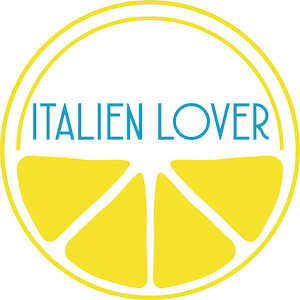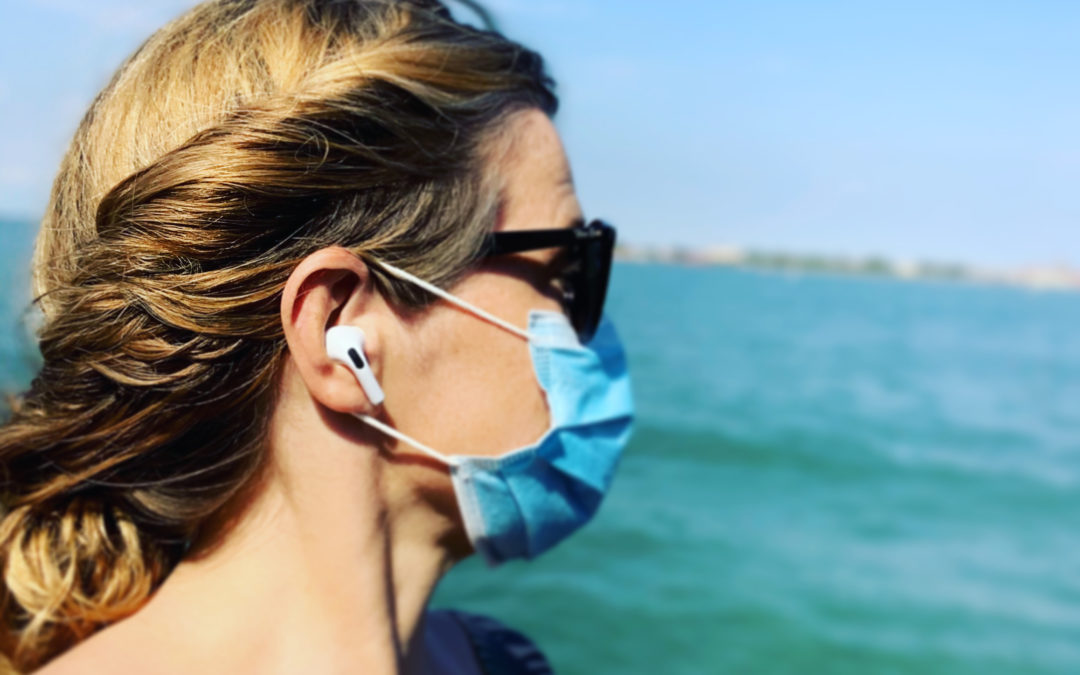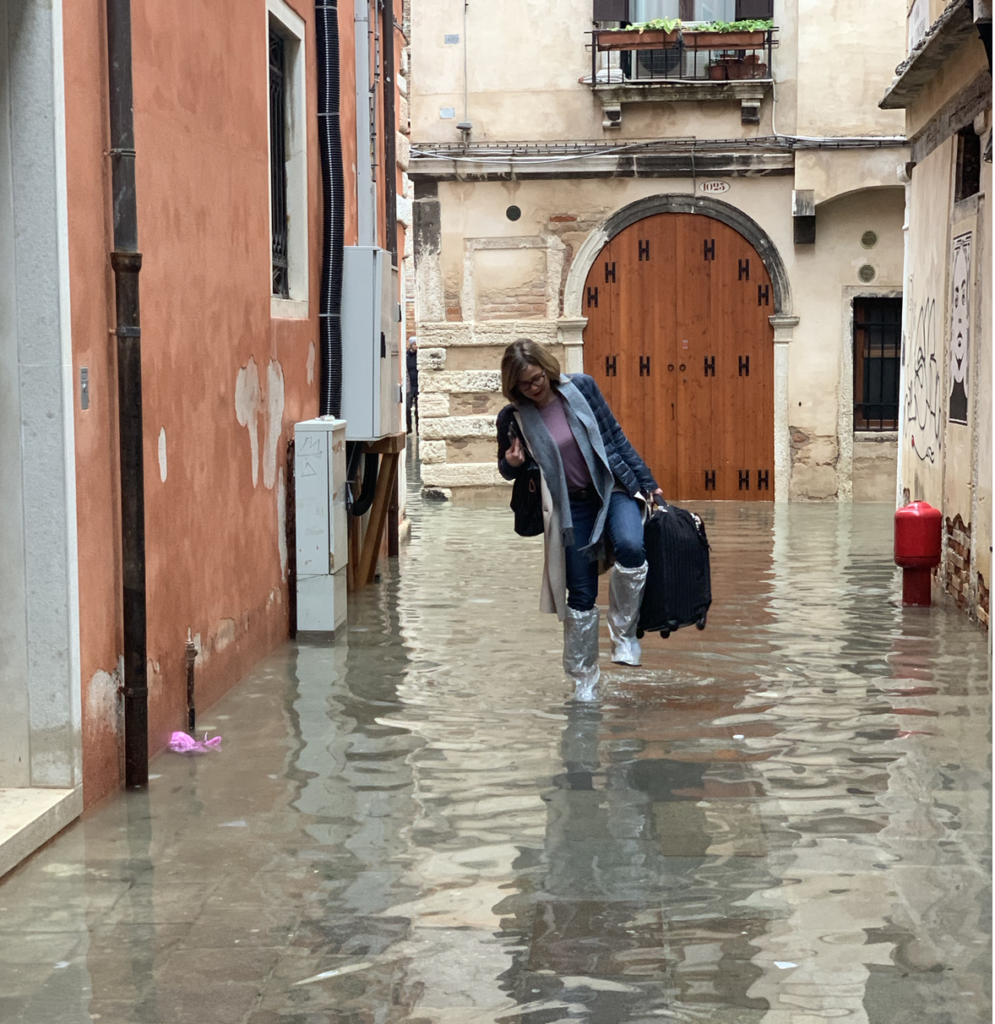Venice is constantly drowning. Last year it was drowning in its almost unprecedented “acqua alta” and people were rowing across a submerged Piazza San Marco. For over a century, it has been drowning in the relentless flood of tourists that make it almost impossible for the local residents to live in the city. Its lagoon is drowning in the pollution generated by the frenzied traffic of motor boats. And now, like the rest of the world, it is drowning – or perhaps tentatively emerging – from the economic crisis that followed the pandemic. I was here for the acqua alta and I am here for this, right now. The main difference is that nobody suggested the city was going to learn a lesson from last year’s flooding, at least not in the way that everyone is suggesting we should emerge from this crisis somewhat transformed, more conscious of how Nature is a power to be reckoned with and of how we, as a species, should be less arrogant and take more care of the planet and our fellow humans.
While I am skeptical of any transformational experience – particularly one as catastrophic as this one – I can’t help but notice that something about Venice has indeed changed.
Tourism as we knew it is probably gone forever, but it looks like we can start to rebuild it and make it more sustainable. Venice will no longer be chocked by mass tourism, the Rialto Bridge will not be teeming with couples elbowing the way to the railing to get a picture. This will make a few residents breathe a sigh of relief, but it might also cost thousands of shop-owners and service-providers their livelihood. Some are starting to wonder what would happen if Venice were to become a “normal” city. Can Venice ever be “normal”? Personally I doubt its unique character can ever be altered. But since there has been endless talk of limiting the flow of tourists in order to protect the city, we might as well take this opportunity to take a look around and have a serious discussion about this.
Venice looks rather different these days. Gondolas are slowly getting back on track again along its deserted canals. Stand Up paddlers and kayakers can look at Venice from the water without polluting it. The electric boat business, which came to a halt during this year’s lockdown, is slowly starting again and offering crowds of visitors a cleaner, altogether more wholesome experience of the lagoon than they would get with any of the traditional tours.
These early, positive examples are also inspiring other businesses become more sustainable, in order to keep Venice going and to maintain a healthy relationship between the city and the water that embraces it. And it’s not just about managing tourism: other activities are being made “inadvertently” greener and more sustainable too. CBV boats were used to make some historic events possible, such as the yearly Campari night at the Biennale.
Being outdoors and in separate boats keeps people safe. The water, which will forever be Venice’s pride and curse, is now coming to the rescue helping the city bounce back from the Covid crisis.
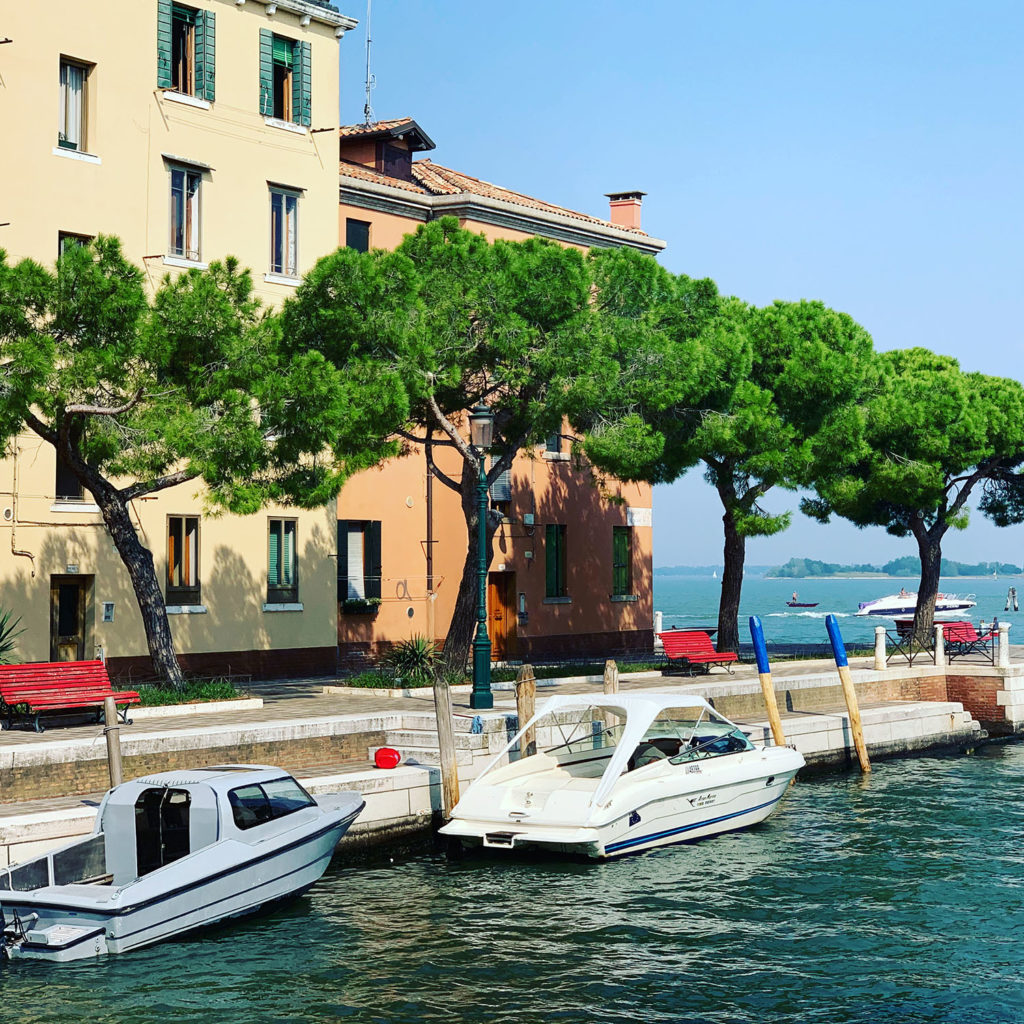
According to Marketing manager JP Morselli, the new wave of tourists that reached Venice after the lockdown was lifted are better, more environmentally conscious, and more respectful than the crowds this city has been dealing with for the past century. They appear to be in favour of pushing the reset button on mass tourism and would rather ride an electric boat than dump gasoline into the lagoon for no reason.
The team of Classic bots Venice, is very grateful. And this is why they managed to continue the venture they started before the pandemic: transforming Lady Betty, the oldest boat in the fleet, into an electric boat.
Is Venice going to endorse sustainable tourism through and through and embrace good environmental practices? The good news is that question is still on the table, for now. I guess it will depend on what this new breed of tourists engages with and appreciates. Supporting sustainable tourism is not the local government’s burden, however: it rests with anyone who visits the city. As visitors in this incredible, maddening, surreal place, we should always endeavour to respect and cherish it, rather than spoil it for our fun. Small gestures, like choosing to ride electric boats, are easy and achievable and help keep the city cleaner and healthier.
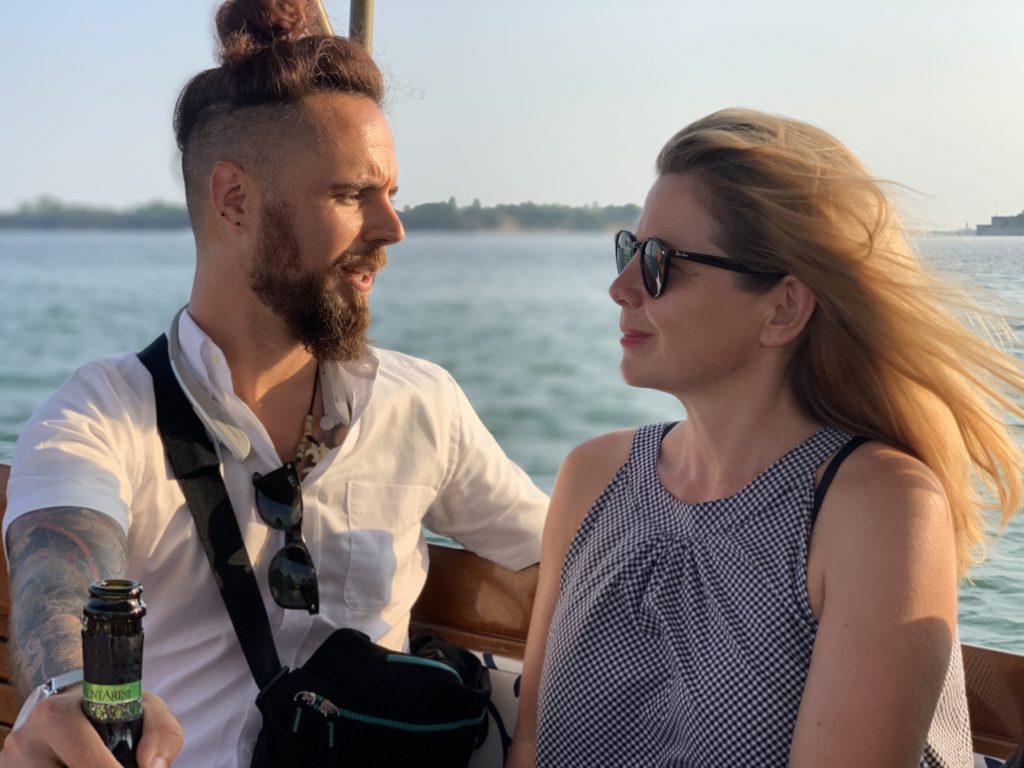
If you are visiting Venice and would like to take your first steps towards sustainable tourism, our partners and friends at Classic Boats Venice can help.
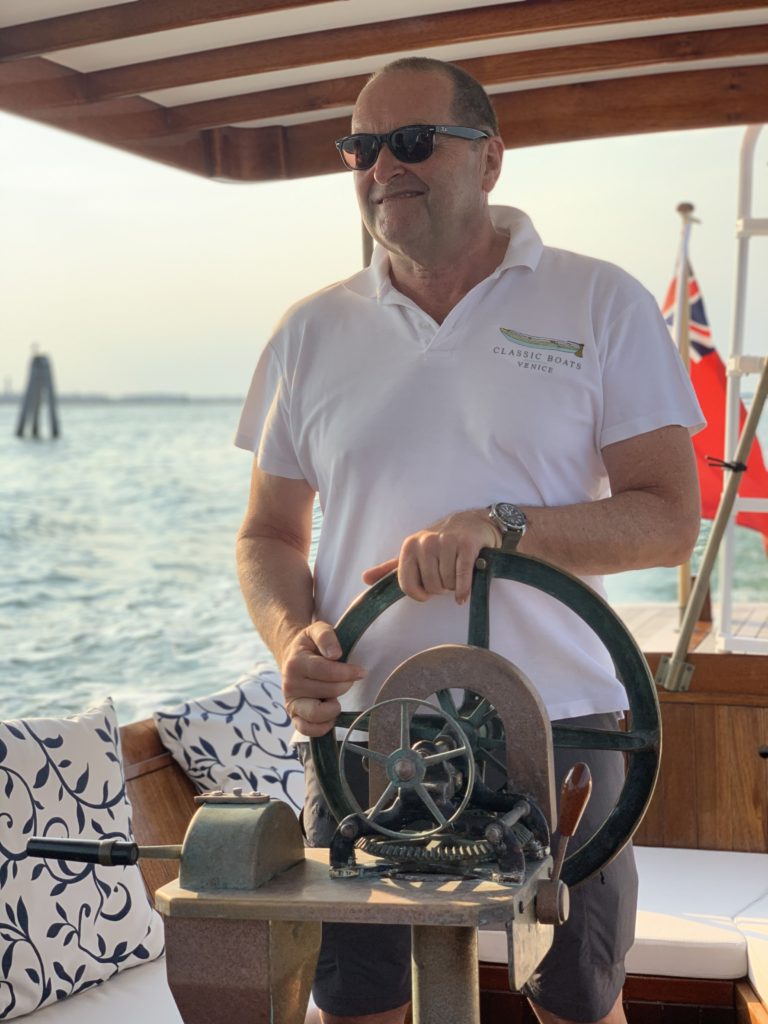
You can book your tour here.
